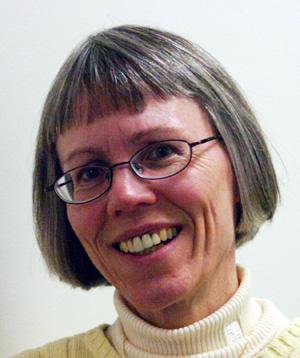
By Barb Arland-Fye
Although timing was coincidental, we imposed the death penalty on an abominable terrorist the same day we celebrated the beatification of a pope who opposed capital punishment.
President Barack Obama announced May 1 that “the United States has conducted an operation that killed Osama bin Laden, the leader of al Qaeda, and a terrorist who’s responsible for the murder of thousands of innocent men, women, and children.”
Our country has sought revenge for nearly 10 years since Sept. 11, 2001, when al Qaeda orchestrated stunning, simultaneous attacks of terrorism in the United States that killed nearly 3,000 individuals.
In our search for “justice” we’ve fought two wars — in Afghanistan and Iraq — and lost thousands more lives in the process. President Obama said that when he took office, he instructed the CIA director “to make the killing or capture of bin Laden the top priority of our war against al Qaeda …”
Later in his statement, the president assured families of loved ones who died Sept. 11, 2001, that “Justice has been done.”
By the jubilant responses shown on TV and the Internet, and the bellicose headlines in the newspapers, you’d think victory has been achieved; terrorism has had its major artery severed. Peace at last?
In his Day of Peace Message on Jan. 1, 1972, Pope Paul VI cautioned that the use of force can create a false sense of peace. Men in posts of responsibility, he said, have it in their interest and their duty to see that relations be normal between the members of a given group — a family, a school, a firm, a community, a social class, a city, a state. But “their constant temptation is to impose by the use of force such normal relations as bear the appearance of Peace.”
The consequence is the inevitable “violent outburst which by the devastation of every sort shows how false was the Peace imposed only by superiority of power and force,” the Holy Father wrote. His observation “If you want peace, work for justice” became the rallying cry for social justice advocates.
Thirty years later, Pope John Paul II — observed in his Jubilee Homily to Prisoners (July 2002) that “A sign of hope is the increasing recognition that the dignity of human life must never to be taken away, even in the case of someone who has done great evil. Modern society has the means of protecting itself, without denying criminals the chance to reform.”
I think this pope — beatified the same day bin Laden’s life was taken — would have been appalled by what amounts to our country acting in God’s place and taking the attitude of champions in a sports event.
Jesuit Father Federico Lombardi, the Vatican’s spokesman, noted in a statement responding to the news that “In the face of a man’s death, a Christian never rejoices.” The priest said we should always be looking to further the growth of peace and not hatred.
In my own family, there’s disagreement as to whether Osama bin Laden’s death was justified. Ironically, my younger son has been engaged in a class debate concerning the death penalty. His role is persuading classmates to oppose it. Current events give us ample opportunity to explore this important issue.








